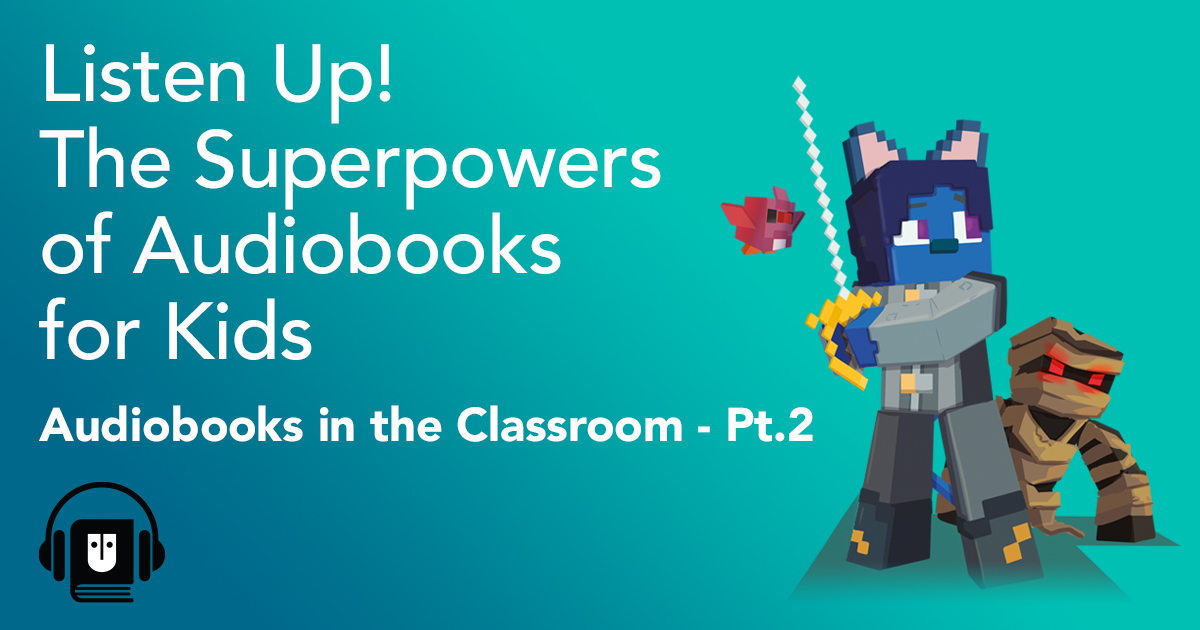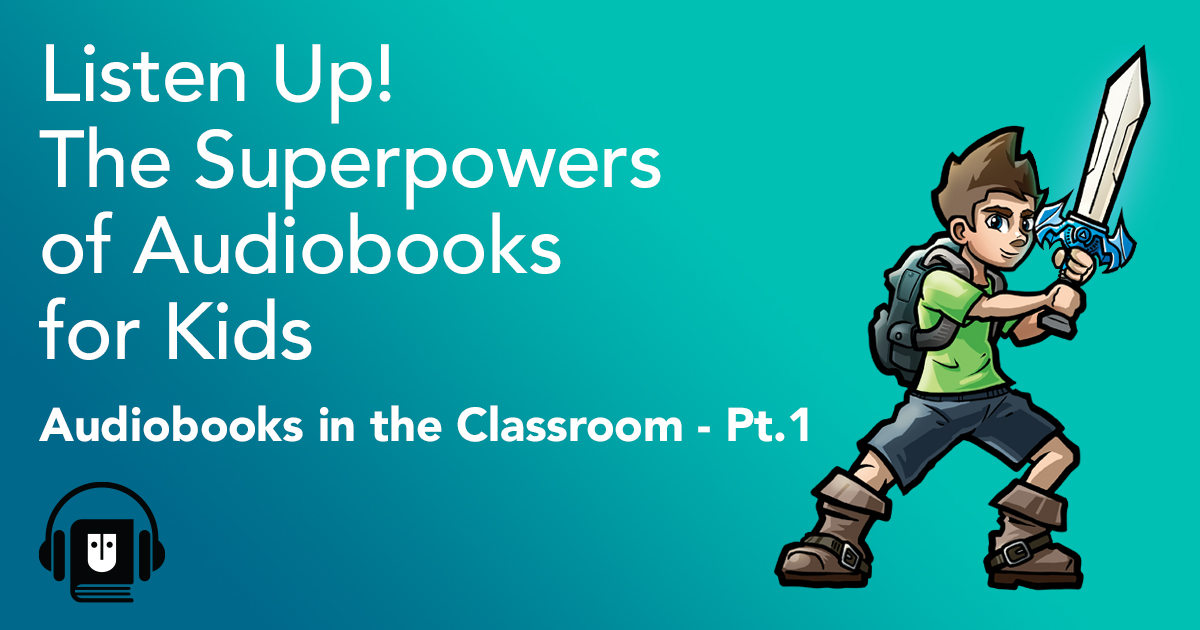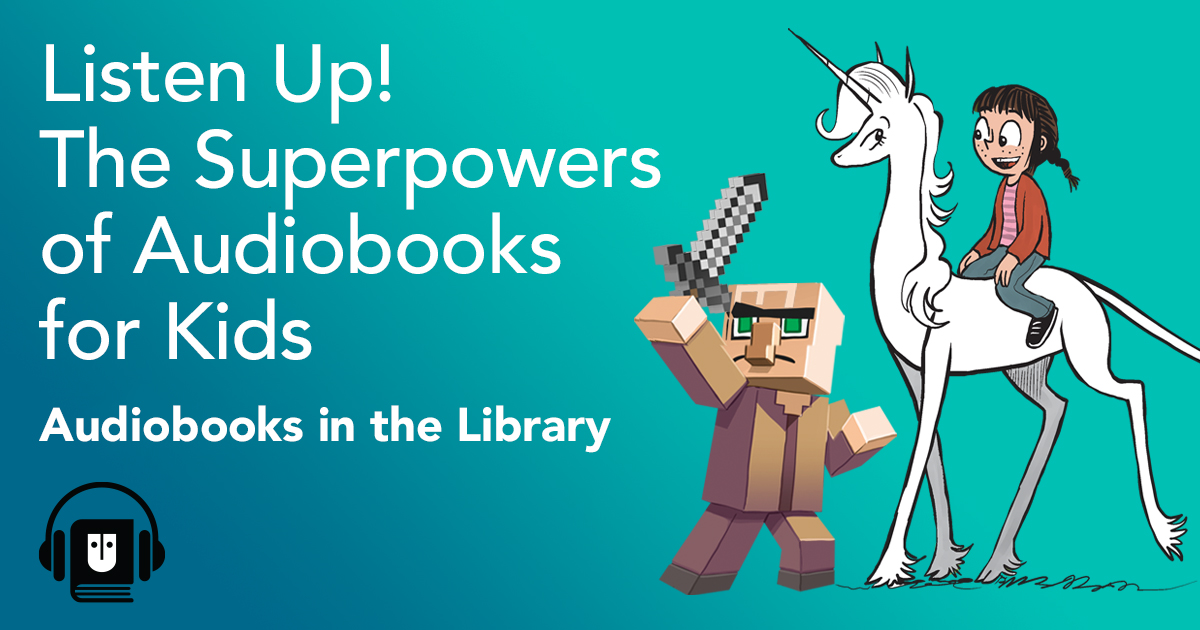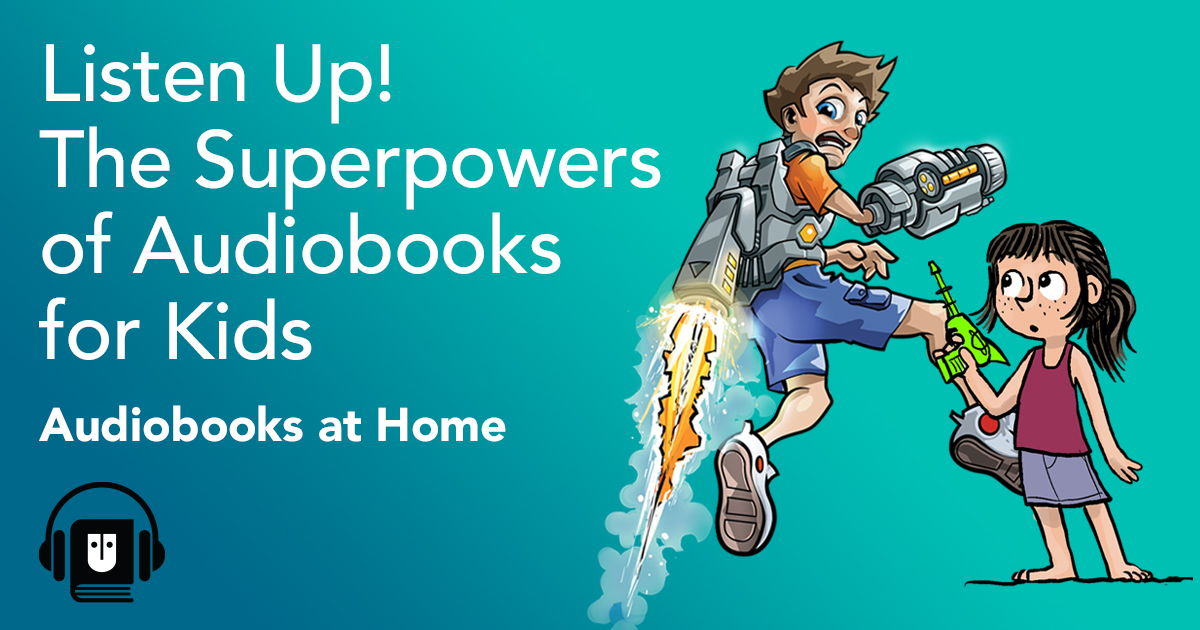
Welcome to the enchanting world of kids’ audiobooks, Part 2!
Audiobooks for auditory learners
Audiobooks benefit many different students in the average classroom. For instance, they help learners who are auditory processors with text comprehension. You know the kid in class who needs to be told directly what to do, even with instructions right in front of him? That’s the perfect candidate for a future biblio- and audiophile.
Audio captures attention through a multitude of factors that include narration, pacing, volume, sound effects, and music, creating a dynamic and immersive learning experience. For auditory learners, this multi-sensory stimulation can be particularly engaging, helping them stay focused and attentive throughout the listening process. The rhythmic cadence of spoken language in audiobooks can also facilitate better concentration and reduce distractions for these learners.
Teachers can use audio versions for additional classroom discussion about tone and mood. Audio also opens up the discussion about using own voices for stories. Authentic casting can help with comprehension and understanding. This can start a conversation about diversity in a natural way, even with young readers.
By recognizing the unique benefits of audiobooks for auditory learners, teachers can use them as a resource to create inclusive and effective learning environments that cater to the diverse needs of all students. Incorporating audiobooks into the arsenal of classroom tools acknowledges the importance of accommodating students that thrive with non-traditional learning methods. In addition, it promotes equity and accessibility in education.
Audiobooks for neurodivergent students
Reading can be a challenge for some students with ADHD, due to the focus and single-mindedness it requires. Audiobooks solve much of this; they helpfully allow students to multi-task and, if distracted, more easily pick back up where they left off.
For students who are on the autism spectrum, the tone and inflections made possible by audiobooks can help comprehend information “between the lines” that is easier to miss on the page.
Finally, audiobooks remove the task of having to decode words and numbers, which can be an obstacle for students with dyslexia that keeps them from accessing otherwise enjoyable and helpful stories and information. If students stay too closely within their reading level comfort zone, they may fall further behind grade level on their reading skills; audio can help prevent this scenario. Much as with emergent and reluctant readers, students may even choose to combine audio and visual book editions to build confidence and deepen their text processing skills.
Audiobooks for ESL students: Enhancing Language Skills with Audiobooks
Audiobooks are valuable tools for ESL students. Beyond their obvious convenience, they help students build vocabulary and refine pronunciation while enhancing fluency. This makes them a learning experience that complements traditional text-based methods, providing diverse learning styles and preferences.
One of the most significant benefits of audiobooks for ESL readers lies in their ability to help develop pronunciation and intonation. By listening to native speakers narrate stories and dialogues, students are exposed to authentic pronunciation patterns and accents, allowing them to imitate and refine their own speech. This immersive experience bridges the gap between classroom instruction and real-world communication, which in turn builds confidence and clarity when speaking.
Audiobooks for ESL learners serve as an effective tool for sharpening inflection and the understanding of subtle language cues. In spoken English, intonation plays a crucial role in conveying meaning, particularly in contexts that are filled with sarcasm, humor, or emotions. ESL students often struggle to recognize these subtleties in written text alone. However, exposure to audio recordings lets them grasp the intricacies of tone and inflection, which enhances their comprehension and interpretation skills.
Luckily, for any students whose primary language is Spanish, there’s more excellent news: Spanish language audio is growing at a rapid pace! As the audiobook market continues to grow, more and more listeners can enjoy books in Spanish — both as tools for ESL learners, as well as for English-speaking students who are studying the language.
As a whole, audiobooks represent a versatile and effective tool for ESL learners seeking to enhance their language skills. When they are used to supplement traditional language instruction, audiobooks offer a dynamic and engaging pathway to proficiency and cultural fluency.
Further Reading:
School Library Journal: An Ear for Reading: Audiobooks Take Center Stage in the Classroom
Informed Literacy: The Benefits of Audiobooks for ALL Readers
Edutopia: How Audiobooks Help Emerging Readers and Inspire a Love of Books
Reading Rockets: Benefits of Audiobooks for All Readers
Libro.fm: 5 Ways to Use Audiobooks in the Classroom
ADDitude Mag: Heard Any Good Books Lately?
Pinna.fm: Why Podcasts and Audiobooks are an Incredibly Useful Tool For Kids With ADHD
Smart Girls With ADHD: ADHD and Me: Why Audiobooks Are Wonderful (and Not Cheating)
Read Brightly: Audiobooks for Both Neurotypical and Neurodivergent Tweens.
Every Library: Listening for Life: The Benefits of Audiobooks for Dyslexia
Learning Ally: The Benefits of Audiobooks
The Dyslexia Classroom: Why Use Audiobooks with Dyslexic Learners?
Audio In…



